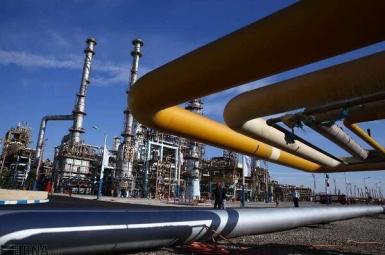New U.S Sanctions' Impact on the Iranian Economy
On 5 November, the Trump Administration imposed severe sanctions designed to bring Iran’s economy to the point of collapse to try to coerce it into stopping behavior that Washington finds objectionable. In addition to seeking to cut Iran’s oil exports to zero, the US will impose secondary sanctions on foreign companies that engage in Iran’s port and shipping sector, its Central Bank and other Iranian financial institutions, and the provision of insurance, and engagement or investment in Iran’s energy sector, as well as other areas.
As President Hassan said at a televised Cabinet meeting on 31 October, hard times are ahead for the country. Expecting that oil exports will fall to half of their 2017/18 levels, the World Bank predicts that Iran’s GDP will decline by 1.5 percent next year and by 3.6% the following year.
Contractions of this extent will not bring Iran to its knees, however. Having been sanctioned by the US for nearly 40 years, Iran has learned resiliency. It has also learned ways to evade sanctions. Many analysts predict that Iran will be able to continue to sell at least one million barrels of oil a day. With oil currently priced at $76/barrel and likely to rise, the revenues should be enough to sustain Iran’s economy.
Iran’s leaders thus will try to wait out Trump, in hopes that he will be replaced in the next US presidential election two years from now. If, as widely expected, Trump’s Republican party loses control of the Congress after this Tuesday’s midterm elections, Iran will have an additional reason to be patient.
The full economic impact of the sanctions is hard to predict, for several reasons. Firstly, the magnitude of the sanctions is not clear. After insisting on a ‘no exemptions’ position, the US government has signaled it understands that not all of the Iranian oil customers can cut back to zero. Secretary of State Mike Pompeo said the US will “consider waivers where appropriate.”
In addition to the eight countries that will be allowed to continue purchasing Iranian oil at a reduced level, other exemptions may be applied retroactively in the coming weeks. In this sense, 5 November is not an absolute deadline. Among the uncertainties is whether sanctions will be imposed on the Belgian-based financial messaging services company SWIFT if it maintains ties with Iran.
Secondly, markets have already factored in the sanctions, which were announced six months ago. Prior to the deadline, 86 Western firms have already announced full or partial withdrawal from the Iranian market. Hence, when the sanctions date arrives the rial exchange rate, the price of oil and the Iranian stock exchange should not undergo wild fluctuations.
A third uncertainty is the state of US-Saudi relations in the aftermath of the 2 October assassination of journalist Jamal Khashoggi in the Saudi consulate in Istanbul. The US had expected Saudi Arabia to replace the Iranian oil taken off the market, in order to keep prices stable. While the Trump Administration appears willing to accept Riyadh’s latest story that Crown Prince Mohammed bin Salman did not order the gruesome killing and knew nothing about it in advance, many members of the Congress from both parties are demanding Saudi Arabia to be penalized. It is ironic that the country that once asked the US to “cut off the head of the snake” in reference to Iran may now, by its own injudicious action in killing and dismembering a mild critic, may help to save Iran.









